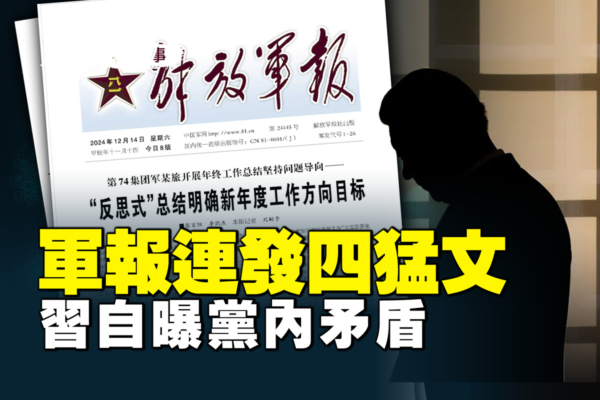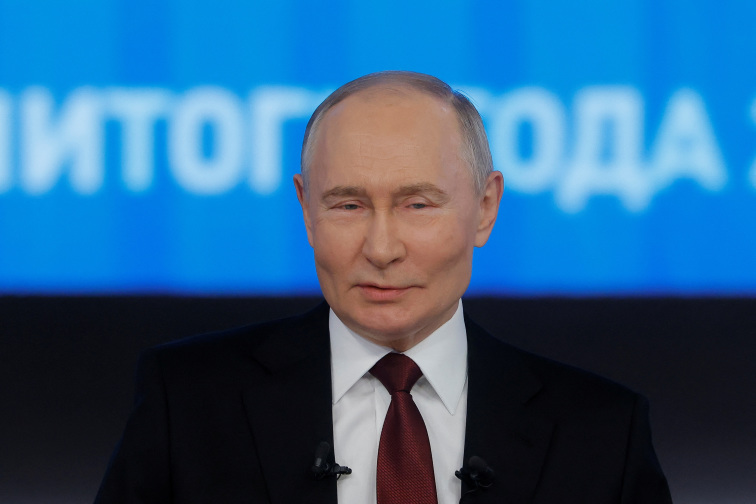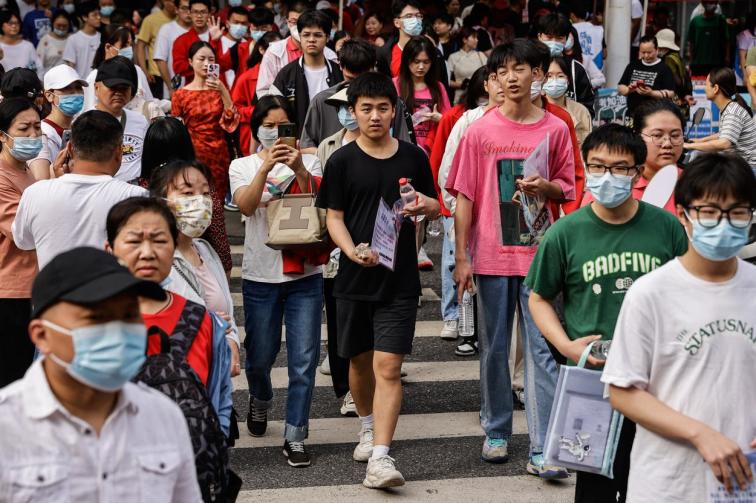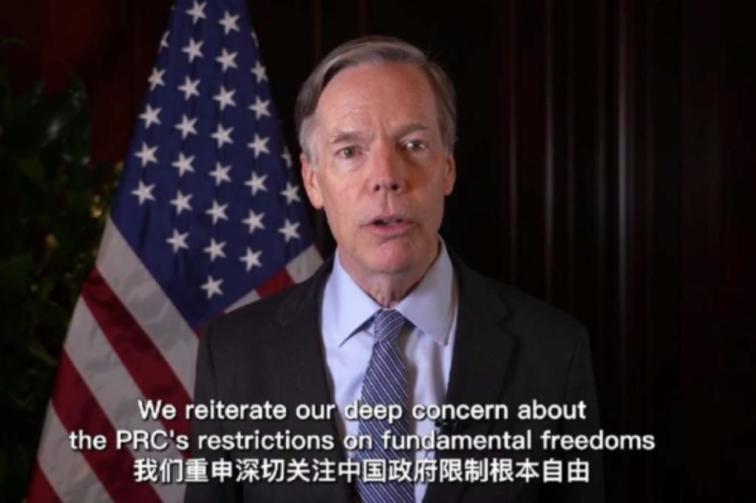Four Strong Articles in the PLA Daily: Is Xi Jinping’s Military Power Being Undermined? Xi Reveals Internal Party Conflicts (Provided by Tang Qing on Current Affairs)
[People News] Recently, many have noticed that reports about Xi Jinping in Chinese state media appear to have reverted to the previously common format of overwhelming praise. However, upon closer inspection, Xi's authority within the military and the Communist Party seems markedly different from what it was before the CCP's Third Plenum. Several analytical pieces have been written about this already, and today I’ll share another observation.
On December 18, the PLA Daily and its official website prominently featured four articles on their front pages. One article discussed Xi’s speech in Hainan, and another previewed his upcoming visit to Macau. Below these were two shorter articles related to the military: one recognizing individuals on an honors list and the other concerning a political education seminar organized by the National Security Academy of the National Defense University (NDU). It’s the details in the latter that deserve closer scrutiny.
The report stated that the National Security Academy of the NDU recently held a seminar themed “Integrating Practical Military Operations to Deepen Implementation of the Central Military Commission’s Political Work Conference Spirit and Advancing Political Army-Building.” Senior leaders from various military units participated in this event. The academy has focused its advanced courses on intensifying political reorganization, emphasizing the need for a holistic approach to study, critique, evaluation, and reform while ensuring the thorough implementation of conference directives.
What sets this seminar apart from the recent study priorities across theater commands and departments of the Central Military Commission is its precise alignment with the main theme of the Political Work Conference Xi held in Yan’an this June—namely, “political army-building.” This theme is aimed at addressing the loyalty issues among senior officers. The report notably quoted Xi’s remarks: “Chairman Xi emphasized that all levels, especially senior cadres, must integrate themselves into the process with the courage to face criticism and expose flaws, deeply reflect on their roots, and earnestly correct them to fundamentally resolve ideological issues. This is essential for advancing political army-building.”
Curiously, aside from quoting Xi and referencing his speech, the rest of the report refrains from mentioning him further. Unlike previous articles, it lacks the customary rhetoric praising or expressing loyalty to Xi. Instead, it focuses on the seminar’s curriculum design, teaching methods, organized visits, and efforts to “solidify the ideological foundation of obeying the Party and following its lead.” Isn’t this highly unusual?
In stark contrast to the subdued tone of recent articles, consider the official piece published on May 15 in the PLA Daily by Gu Linhui, a professor at the National Defense University’s Political Academy. Titled “Political Army-Building Is the Eternal Foundation of the Military,” it was rife with the expected expressions of loyalty: phrases such as “listening to Chairman Xi’s commands, being accountable to Chairman Xi, and reassuring Chairman Xi” and “embracing the core, safeguarding the core, and defending the core” appeared prominently.
Similarly, the July 7 article titled “National Defense University Political Academy: Creating a New Era for Political Army-Building” heavily referenced Xi and his doctrine of political army-building. The piece praised Xi’s speech as “a programmatic document for ideological party-building and political army-building in the new era, providing scientific guidance for creating new achievements in political army-building.” The article explicitly mentioned “Chairman Xi” at least 14 times, replete with pledges of loyalty and adulation, such as “making the resolute implementation of the ‘Two Upholds’ the foremost political discipline, and adhering to the military commission chairman responsibility system as the highest political requirement and discipline.”
Further, on July 27, Zhang Wenjie, a professor at the National Security Academy of the NDU, authored another article titled “The Scientific Theoretical Guide for National Defense and Army-Building in the New Era,” which lavished praise on Xi’s military ideology.
In other words, if the NDU’s Security Academy were genuinely committed to following Xi’s political army-building directives and addressing senior officers’ loyalty issues, one would expect their report to feature the same standard fare of praise and loyalty found in these three articles. However, it does not. This raises the conclusion that the Security Academy’s expression of loyalty is noticeably perfunctory.
Why is this the case? This might be related to the ongoing subtle power struggles within the military. Previous reports suggest that Xi Jinping’s key ally in the Central Military Commission (CMC), Zhong Shaojun, was ousted by Zhang Youxia and may now hold a position as Political Commissar at the NDU. If true, Zhong might be instructing subordinate units to align with Xi’s agenda. However, many in the military appear well aware of the internal power shifts, resulting in a half-hearted approach to fulfilling these directives. This would further indicate Xi’s waning influence within the military.
One noteworthy detail is the PLA Daily’s decision to move the section quoting Xi’s remarks in the Security Academy report to the third page, omitting his comments on addressing fundamental issues among senior cadres from the front page. Doesn’t this speak volumes about Xi’s diminishing standing in the military? Doesn’t it suggest that the military isn’t fully aligned with Xi’s directives?
(First published by People News)










News magazine bootstrap themes!
I like this themes, fast loading and look profesional
Thank you Carlos!
You're welcome!
Please support me with give positive rating!
Yes Sure!